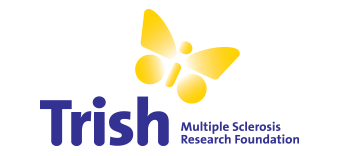Cellular therapy
Commencing January 2020, Professor Trevor Kilpatrick, University of Melbourne, was awarded a 3-year Trish Translational Project Grant titled, “Developing cellular therapy to treat multiple sclerosis”.
The funds were used in a project to develop a therapy for multiple sclerosis (MS) based on using immune cells from the blood of patients with MS. These immune cells are treated with anti-inflammatory signals in the laboratory and will then be re-administered back to the patient, where they selectively target and dampen down the disease-causing cells of the immune system that otherwise promote inflammation and lead to nerve cell damage in MS. This therapeutic approach represents a potentially more targeted and individualised way to treat MS compared to current therapies, which broadly suppress the immune system and can increase risks of infections and cancers.
The activities which have been undertaken include:
- Refining techniques to grow these immune cells from blood samples collected from patients and defining culture conditions that can modify the behaviour of these cells that normally process proteins associated with MS to assume protective/anti-inflammatory rather than disease-inducing/pro-inflammatory characteristics. Professor Kilpatrick and his team have studied one such anti-inflammatory factor, dexamethasone, in-depth and characterised its effects in reducing the expression of proteins on the cell surface and the release of chemical signals that normally activate the immune system to cause inflammation and disease.
- Identifying certain MS-associated proteins that are taken up by immune cells and presented on their surface to initiate the immune responses responsible for causing damage in MS. By identifying these proteins and combining them with signals that suppress the immune system, Professor Kilpatrick and his team aim to turn off the abnormal immune activation targeted towards nerve cells in MS, whilst leaving the immune system still able to respond to other infections and insults.
- Collecting blood samples from nearly 200 patients with MS and testing for the presence of a gene that is a known risk factor for MS. This gene is involved in presenting MS-associated proteins on the surface of immune cells and could influence an individual’s immune responses and capacity to respond to this type of therapy.
Professor Kilpatrick and his team have been able to grow immune cells derived from patients with MS in the laboratory and promote enduring anti-inflammatory characteristics in these cells by treating them with dexamethasone. They have also identified certain MS-associated proteins that are presented on immune cells to activate the immune system, and that their expression can be modified by dexamethasone. The next steps will involve treating the immune cells with relevant MS-triggering proteins but to do so together with dexamethasone to ‘trick’ them into inducing an anti-inflammatory rather than pro-inflammatory response.
If successful, this Project could lead to clinical trials of a new treatment approach for MS which is more selective and potent than current therapies.
Professor Kilpatrick, working with Dr Vivien Li, has been awarded another 3-year Trish Translational Research Project Grant commencing January 2023 titled, “Advancing tolerogenic dendritic cell therapy for multiple sclerosis toward clinical translation” and we will look forward to more exciting progress as Professor Kilpatrick and Dr Li’s impressive work continues.
